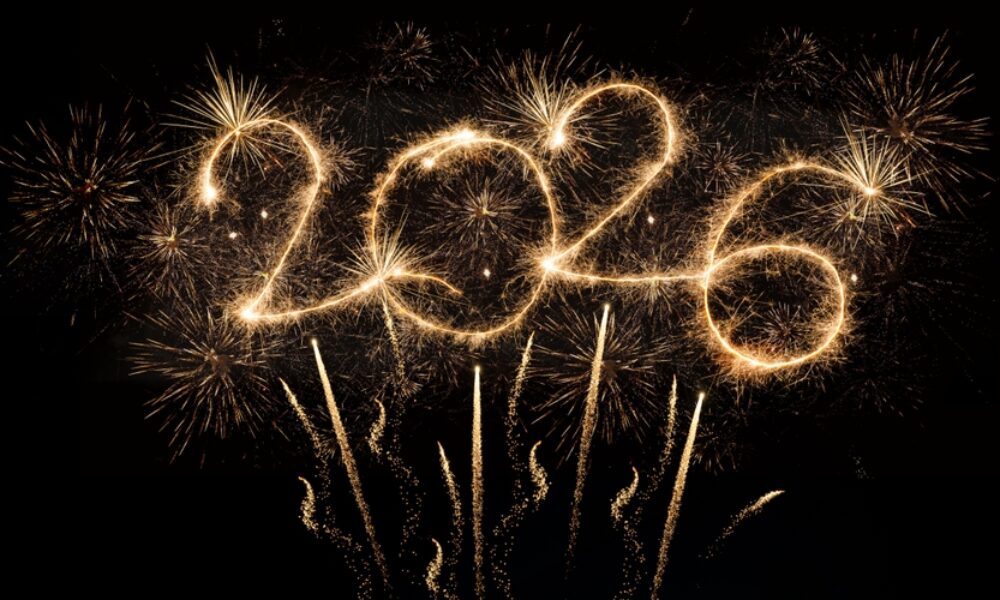You may all be singing it on the first minute of January 1st, but I’ll bet not a one of you knows what that familiar opening line of “Auld Lang Syne” means: “Should auld acquaintance be forgot.” But our crude interpretation is probably how most slot operators feel about this coming New Year: “Old” familiar things will have to be “forgotten.” And none of us really knows what that will mean either…yet.
You can thank the One Big Beautiful Bill Act (OBBBA), signed on July 4th. Whether it ultimately helps or hurts our industry is still anyone’s guess, but right now it’s confusing, and it’s about to change some long-standing casino routines.
When Congress rewrites tax rules, the IRS usually issues final guidance by October. But this year, not a peep on many of the important points that will impact our slot floors. Most operators and several manufacturers are assuming a new $2,000 limit on mandatory jackpot reporting (W2Gs) will begin January 1, 2026. That would replace the old $1,200 reporting threshold, which was ridiculously out-of-date. But as of this writing, the IRS hasn’t officially said when it is supposed to happen. Nor have they updated their website with any new info.
So here is what we (think we) know:
- Most operators have not yet made any changes required by the July 4 bill and are still issuing W2Gs at $1,200+.
- Even if the new law does kick in at midnight on December 31, you don’t have to change the $1,200 lockup setting on your machines right away (or ever) just because of this new regulation.
- But you do have to stop issuing W2Gs at $2,000 and below whenever they officially approve a date (even if your machines are still “locking up” at the lower $1,200 limit).
- Both players and team members are going to be confused for weeks or months afterwards.
For those without a Slot Ops background, here are some of the procedures that have to be addressed:
CMS Update (probably easy)
Most Casino Management Systems (CMS) will just need a year-end adjustment, along with the new limit setting. This is generally just a software setting done with a few keystrokes.
Slot Machines (not so easy)
This is where things get messy.
I. Some manufacturers (e.g. Konami, Zitro and others) report that all of their games can be updated with a simple setting change (no new software required).
II. Others may need new software and may require a RAM Clear. (including some in Group I above). A RAM Clear is a resetting of the machine’s Random-Access Memory chip that wipes out all the game’s internal meter readings. Accordingly, those numbers must be manually recorded before they are cleared and correctly restored afterward. It takes a while.
III. And then there’s the most troublesome group: machines that cannot be updated at all. These are older models that have been declared “obsolete” by the original manufacturer. In other words, despite the new law, these games will keep locking up at $1,200 even when the federal limit is raised to $2,000. There’s nothing you can do to fix them. However, you may not want to get rid of them either. Dumping a popular older game like Buffalo on an Aristocrat MAV500 cabinet could risk losing players. Other popular games like Bally’s S6000 mechanical reel game (think Blazin’ Sevens) and IGT’s S2000 (like Triple Diamonds) probably will fall in this same category. When these games lock up (between $1,200 and <$2,000), they will require a slot attendant to manually get them back in service and will probably generate some unsavory comments from impatient players.
There’s little doubt that those same players will love the higher W2G threshold. Operators report that roughly 65% of all jackpots today fall between $1,200 and $2,000. That means fewer lockups, fewer forms, faster play, and better overall service. Don’t forget the importance of lower taxes.1
Slot attendants, however, may take a serious hit. Every eliminated jackpot lockup is a lost tipping opportunity. Some attendants could lose 50–65% of their annual tip income. No one knows yet how hard it will hit, but it will hit.
The older games might still be good for the attendants, but players may become irritated that their favorite old games are still “locking up” and decide to skimp on their gratuities.
Here’s another rub: Despite players being happy about fewer W2Gs, they’re furious about another section of OBBBA: Gamblers may now deduct only 90% of their losses against their winnings.
That means:
- Winners will be taxed on money they never actually kept.
- The biggest players (VIPs, Pros and Advantage Players) will take the biggest beating. Many are already saying they’ll consider shifting their action to foreign venues, online, prediction markets, or anywhere that doesn’t treat them like tax suckers. That will hurt.
No one in D.C. seems to know who added this 90% clause or why. Several lawmakers have promised to “fix it.” But in today’s partisan Congress, it is wishful thinking that anyone will successfully amend OBBBA.
And don’t get too comfortable once you survive the first quarter of 2026. OBBBA has a built-in inflation provision on the new W2G thresholds. That means we have to go through the machine changes again on January 1, 2027.
“Happy (???) New Year”!
# # #
1 – IRS regs say that every gaming win on a slot machine, no matter how small, should be reported as income on your taxes. But the reality is that 99.9% of players only report their “taxable jackpots” listed on the W2Gs they get from casinos.




